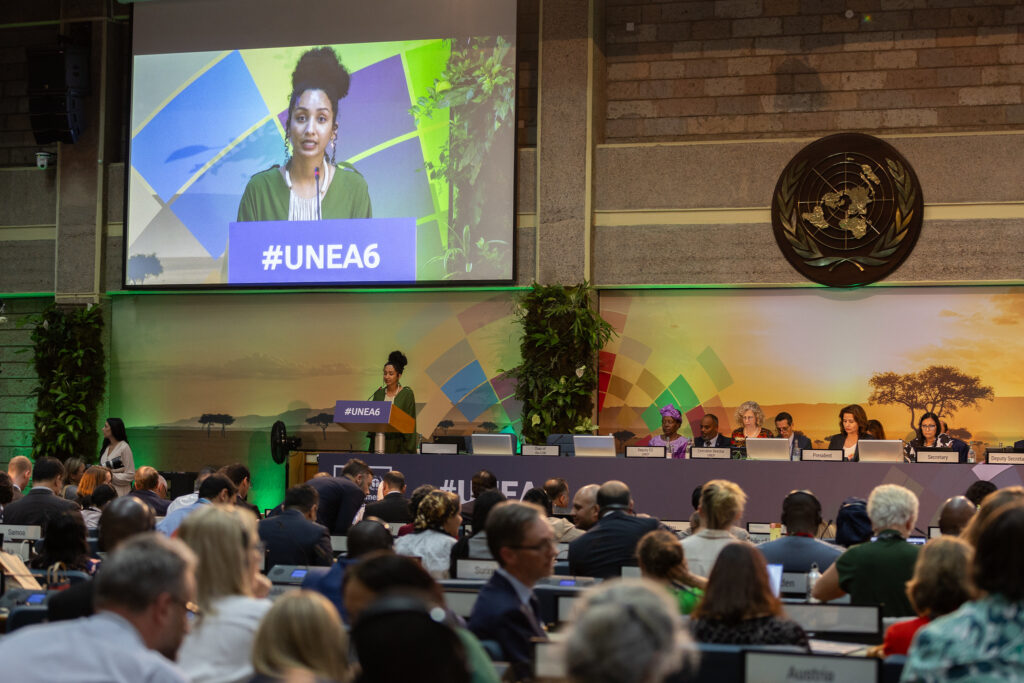The United Nations Environment Assembly (UNEA) recently wrapped up its business in Nairobi, with Kenya once again playing a leading role in global environmental discussions and demonstrating its commitment to the Sustainable Development Goals. The sixth annual assembly focused specifically on addressing the triple planetary crisis of climate change, nature and biodiversity loss, plus pollution and waste.
I believe that the resolutions from this assembly, once applied with passion by the participating states, have the potential to shape the global environmental agenda. This successful global event highlighted Kenya’s potential and its crucial role on the international stage. Moving beyond the UNEA sessions and the complex language of multilateralism, scientific processes, political maneuvers, and plurilateral stakeholder engagement (which reminds me of Pastor Raphael Obego’s use of complex English during prayers at the Homabay Investment Conference), the event also provided a chance to reflect on our own successes and challenges. This is what I have chosen to focus on in my article today, because we seem to be a nation that rarely celebrates its successes.
As vastly reported, Kenya’s economic landscape in 2023 has demonstrated remarkable resilience, with real GDP growth accelerating from 4.8% in 2022 to an estimated 5% in 2023, despite facing numerous challenges. This growth was significantly supported by the agricultural sector’s rebound from severe drought conditions, which helped ease inflation pressures. However, this growth was not without its trials, as adverse weather conditions subdued agricultural production, tempering the overall economic momentum gained post-pandemic. Despite these instabilities, the Kenyan spirit of resilience shines through, illustrating four strategies by which our nation can consistently overcome obstacles.
First, this economic potency is largely due to the private sector, which has been a driving force behind Kenya’s success stories, such as the revolutionary mobile banking service M‑KOPA. The private sector’s dynamism underscores the need for a supportive economic policy framework that facilitates investment and innovation, free from the encumbrances of bureaucratic obstructions.
Secondly, the political atmosphere, too, has its major role in shaping economic fortunes. The continuous cycle of political campaigning can dampen the investment atmosphere, yet President Ruto’s government, has shown a commitment to improving Kenya’s economic standing. However, I humbly suggest that the current administration’s efforts should to be communicated more effectively to the populace, since they are the ultimate beneficiaries of these policies. It’s a task that, if done well by everyone in their docket, could further solidify public support and foster a deeper understanding of the government’s well-meaning initiatives while creating national unity.
Thirdly, in the intricate mosaic of Kenya’s social and political landscape, the importance of agenda-based political parties cannot be overstated. These parties, however young they may seem to be just like the Green Thinking Action Party (GTAP) where I am a steward, provide a valid structure through which progressive policies can be formulated and implemented, steering the nation towards a future defined by growth and prosperity. This is a future where Kenya’s achievements are celebrated by Kenyans themselves, fostering national pride and international admiration. This is where you intentionally check which political party you belong to and what the party stands for.
Fourthly, personal responsibility stands as a cornerstone in this vision. It’s the collective actions of individuals that fortify the foundations of a nation. Each citizen’s engagement in socio-economic activities, environmental conservation, and the democratic process contributes to the nation’s trajectory towards greatness. A case in point is the ‘plant your age’ campaign, where tree growing is personalized. We should each ask ourselves what specific actions we are taking to bring about the change we wish to see.
Ultimately, Kenya’s leadership in environmental stewardship, exemplified by mindboggling milestones achieved by our various presidents over the time and hosting of UNEA, signifies our role in global sustainability. Our future is intertwined with our environmental and economic policies. Celebrating our successes attracts further progress. Embracing challenges propels us toward a promising future. Together, we can make Kenya a beacon of sustainable development. ‘Na fitina tuache!.’ Think green, Act green.



